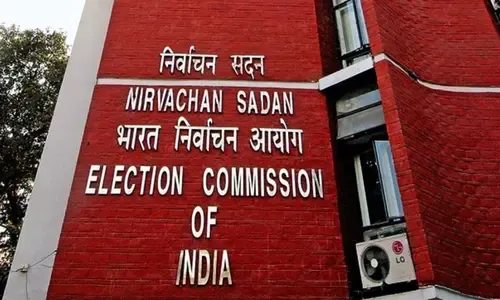Is Bihar Moving Towards Good Governance Under Nitish's Leadership?

Synopsis
Key Takeaways
- Nitish Kumar criticizes the past governance of RJD.
- Law and order has been prioritized since 2005.
- Police presence and strength have significantly increased.
- Women’s empowerment is a key focus, with substantial representation in the police.
- Bihar is now viewed as a place of opportunity and pride.
Patna, Oct 26 (NationPress) In the midst of the current Bihar Assembly election campaign, Chief Minister Nitish Kumar vehemently criticized the Rashtriya Janata Dal (RJD) and the Lalu Prasad Yadav family, accusing them of leading Bihar into a period marked by crime, corruption, and chaos during their governance from 1990 to 2005.
In a comprehensive post on X, Nitish Kumar stated that prior to 2005, Bihar was engulfed in fear and disorder.
“People hesitated to leave their homes post 6 p.m. Crime had transformed into a lucrative business. Our sisters and daughters faced insecurity. Kidnappings and extortion were widespread, and industries were paralyzed by terror,” he remarked.
He alleged that the RJD administration had rendered governance ineffective, making it a source of embarrassment to be identified as a Bihari.
Nitish Kumar claimed that since his government assumed power in 2005, law and order has been prioritized.
“We instituted the rule of law, applying zero tolerance towards crime and corruption. Currently, the state enjoys an atmosphere of love, unity, and tranquility,” he stated.
Highlighting enhancements in policing, the Chief Minister noted that the number of police stations in Bihar has surged from 817 in 2005 to over 1,380 today, with police personnel increasing from 42,481 to more than 1.25 lakh.
Furthermore, he underscored the state’s commitment to women’s empowerment, revealing that a 35% reservation has been allocated for women in the police force, which now boasts the highest female representation in the nation.
“To guarantee women’s safety, we have also established the Tribal Women’s Self-Respect Battalion,” he added, mentioning ongoing recruitment efforts for over 2.29 lakh new police positions.
Nitish Kumar referenced the establishment of forensic laboratories, the State Constable Recruitment Board (2008), and the Bihar Police Subordinate Services Commission (2017) as pivotal reforms designed to fortify law enforcement and enhance recruitment efficiency.
He remarked that the people of Bihar opted for a new direction in 2005 — one of development accompanied by justice.
“That year marked a significant turning point. Today, Bihar stands as a realm of opportunity and growth. Youths are securing employment, industries are flourishing, and the state is thriving. Being referred to as a Bihari is now a source of pride, not disgrace,” Nitish expressed.
In conclusion, the Chief Minister firmly asserted that the people of Bihar will never revert to the age of chaos.










